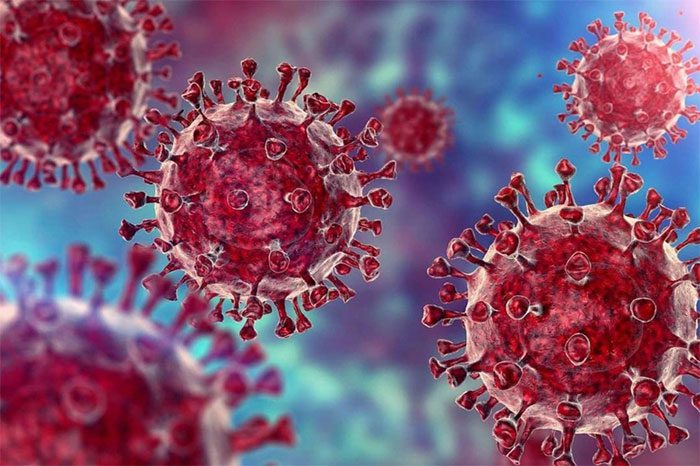In a recent study, an international team of scientists discovered antibodies that can neutralize Omicron and other variants of the SARS-CoV-2 virus responsible for the Covid-19 pandemic.
The research, published in the scientific journal Nature over the weekend, revealed that scientists found an antibody named sotrovimab that can neutralize Omicron and other variants of SARS-CoV-2. This antibody targets the “conserved regions” on the virus’s spike protein, which remain unchanged even when the virus mutates.

Omicron is a variant containing numerous mutations on the spike protein. (Image: Nature).
By identifying the antibody’s target on the spike protein, researchers can design vaccines and treatment methods for Covid-19 using antibodies that are effective not only against the Omicron variant but also against other variants that may emerge in the future, according to David Veesler, an expert at the Howard Hughes Medical Institute and an associate professor of biochemistry at the University of Washington.
“This finding tells us that by focusing on antibodies that target conserved regions on the spike protein, we can potentially halt the continuous mutation of the virus,” Veesler stated.
Veesler leads the research project along with other international experts, including specialists from Switzerland.
Omicron has 37 mutations on the spike protein used to attach and penetrate human cells. These mutations are believed to help Omicron spread more rapidly and evade immunity more effectively. Researchers found that the spike protein of Omicron can bind to cells 2.4 times better than the spike protein from the virus isolated at the start of the pandemic.
Next, they studied how effective antibodies used to combat the original variants of SARS-CoV-2 are against Omicron. They observed that antibodies from patients who had contracted Covid-19 in the early stages of the pandemic and had been vaccinated showed reduced neutralizing activity. The neutralizing activity from those who had been infected and then vaccinated was diminished as well, but to a lesser extent, only about 5 times. This indicates that antibodies generated through vaccination after infection are very useful. In individuals who received a booster dose of the Covid-19 vaccine, the neutralizing activity only decreased by about 4 times.
The only antibody that did not show a significant reduction in its ability to neutralize Omicron was the sotrovimab antibody. Research results indicated that its neutralizing effect against Omicron only decreased by 2 to 3 times.
However, when examining larger quantities of antibodies produced to combat earlier virus versions, researchers identified four groups of antibodies that still retained the ability to neutralize Omicron. These antibodies target one of four specific regions on the spike protein not only on the SARS-CoV-2 variant but also on a group of related coronaviruses known as sarbecoviruses.
The global scientific community continues to race against time to determine the severity of Omicron, although some initial data suggest that this variant causes milder symptoms than older strains.
On December 28, the World Health Organization (WHO) warned that the risk from this variant remains “very high” as it is one of the reasons for the significant increase in global Covid-19 cases in recent weeks. Last week, global Covid-19 cases rose by 11% as Omicron was assessed to have a “growth advantage” over Delta. The number of Omicron infections could double every 2-3 days. At this rate of spread, Omicron poses a threat to any healthcare system.


















































